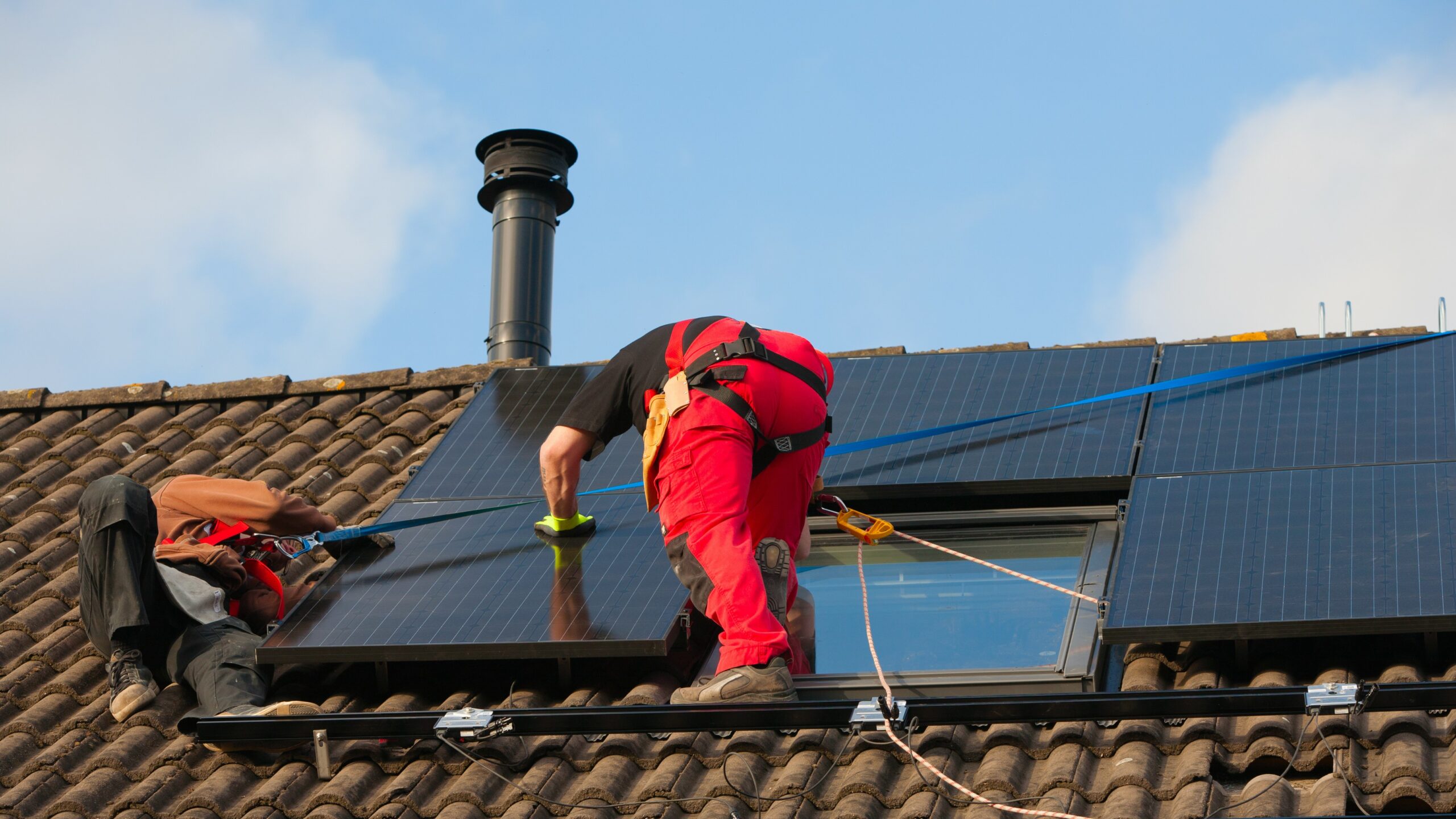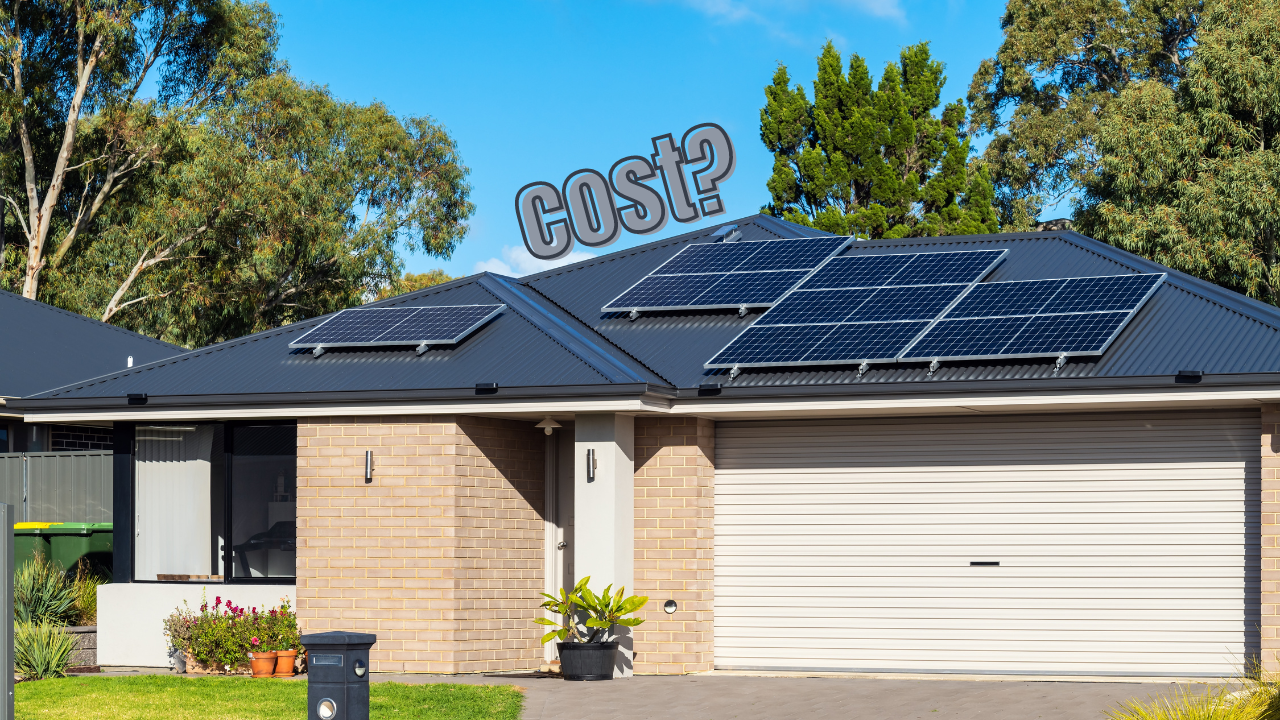You may know that Florida is the Sunshine State, but does that mean it's the perfect place for solar panels? Florida has plenty of sun, and with the new Inflation Reduction Act promoting energy efficiency through tax credits and rebates, you may wonder if going solar is worth it.
Solar panels are worth installing in Florida, thanks to the ample sun available, the return on investment, and the solar incentives in Florida, and you'll be helping the planet by using renewable energy. However, it would not be worthwhile if you plan on using a solar lease or PPA.
The sun may give free energy, but getting it to power your home isn't! We'll give you a full scope on the cost of solar in Florida, covering all you should know to determine if solar panels are worth installing from a cost perspective.
Solar Panel Costs in Florida
The most crucial element to deciding if solar panels are worth installing in Florida isn't the state's sunny disposition – it's what it will cost you in cold hard cash. Solar power is rumored to be an investment, and a true investment saves you money in the long run. Therefore, determining how much solar panels cost and how long it will take to show money-saving results are key elements in the worth-it debate.

To start off with the basics, your fully solar-powered home will require the following:
Solar Storage or Batteries
usually lithium-ion batteries
Installation cost
which you shouldn't do alone unless qualified!
Hybrid or Solar Inverter
a device converts DC solar power into AC power.
DC Combiner Box
electrical switches that shut the solar power system off.
Solar Panels
you'll typically need between 20 and 30-more on the calculation later.
Solar Panels vary in cost, but it is typically a total of $2.58 per watt in Florida. The lowest suggested system is 5 kilowatts (kW). As for panels themselves, you get Monocrystalline panels at around $1.50/watt, less efficient Polycrystalline panels at $1 per watt, and the budget-friendly, least efficient Thin-film panels ranging from $1 to $1.50 per watt.
How many inverters you need depends on the amount of solar panels you have and their wattage. Hybrid inverters are combined with batteries and are more expensive but are more cost-effective than buying an inverter and battery separately, which lessens the initial startup cost. If you're dealing with an industrial-sized setup, you'll want separate batteries and inverters.
Solar storage batteries cost around $500 per kWh. A non-hybrid inverter can cost around $580. Hybrid inverters are around $1350. You'll only need one DC combiner box to link all your solar panel power into one connection, costing between $80 to $150.
As for installation costs, a solar company or contractor is needed. They must be fully licensed. You cannot hire a general contractor or electrical engineer to do the work because anyone who installs or works on your solar system requires a solar license. This is especially important for getting tax rebates. The installation price tag is roughly $11 000 to $15 000.
The Total Cost of Solar in Florida
Now that you know how the cost gets broken down, you may want to know the total price tag, but it depends on the wattage. The great news is you get a 30% tax credit on the total cost under the Inflation Reduction Act. This lessens your total, but you still have to pay upfront.
Before deductions, the cost of solar panels in Florida is as follows:
5 kW: $13 000
6 kW: $15 600
7 kW: $18 200
8 kW: $20 800
9 kW: $23 400
10 kW: $26000
Cutting Solar Panel Costs For Your Needs
It doesn't help to pay for something you don't need! The first step to knowing how many solar panels you need for your household is to calculate based on your usage.
Generally, you can find your kilowatt needs by multiplying your household's average electricity usage by the peak sunlight hours in your area (Florida's is 5.67 hours per day). You then divide this number by the watts of your solar panel size to find how many you need.
You should monitor your electricity usage for three months to get an accurate reading and note that your usage is more in winter. To save costs, you could cut back on extra batteries or ensure you get hybrid inverters instead of separate batteries.
To get the best solar installation price, get quotes from multiple companies and figure out if it's cheaper to buy the panels and parts on your own and hire a solar contractor separately. Always do a cost calculation to see if solar fits your financial needs.
Solar Incentives and Rebates in Florida
The 2022 Inflation Reduction Act means you get a tax credit for 30% of the entire cost of your solar panel purchase and installation in the form of a tax credit. Solar panels and components are also tax-exempt. You won't see the money reimburse your bank account directly, but you do get to save money on tax.
Other Florida incentives include:
Dunedin Solar Energy Rebate Grant Program
Dunedin residents get a maximum grant of $2500 for solar installation.
Boynton Beach Energy Edge Rebate Program
You get $1500 for installing solar if you live in Boynton Beach.
Net Metering
In Florida, you can sell unused solar energy to a utility company for money back.
Long-term Cost Savings
and Reduced Energy Bills
Once you install your solar panels in Florida, you'll immediately save on your monthly electricity bill. If you plan on net metering, you'll quickly earn money back for putting energy onto the grid. In Florida, your solar installation will pay itself off in savings within 6 to 12 years.
Solar Leases and PPAs
Solar leases and power purchase agreements are an option if you can't afford solar alone. Although reducing your monthly utility bill may be tempting, these agreements don't boost your home's value nor give you a tax credit.
They also take forever to pay off, and considering that solar panels have a 30-year lifespan, you don't want to pay them off for too long.
Frequently Asked Questions
On going solar in Florida.
How much Power can Solar Panels create in Florida?
The power a solar energy system will generate depends on the month, location, and the kilowatts of the system. One day in Florida usually has 5.2 hours of ideal sunlight in a month. Ideal sunlight pertains to a sunny day with clear skies. Don’t worry, even if it’s cloudy, the system will still capture solar power, but it will be less than when there’s ideal sunlight.
If a 5kW solar energy system is installed, Florida homeowners tend to generate the most energy in April with 6.41 kilowatts per day. The lowest energy captured is in December with 4.49 kilowatts per day.
The data above only applies to a 5kW solar energy system. If you get more panels, you can generate more power. When computing for the energy you can produce, you should know that each panel is not 100% efficient, but only 85% to 92% - this also applies to the new ones.
Is there enough Sun?
Yes, Florida receives 18,581.94 KiloJoules per square meter (KJ/m²) of sunlight every day. Solar panels in Florida receive 33% more than solar panels in New York State which only receives 13,933.79 KJ/m² of sunlight per day. Specifically, for every 1 kilowatt of solar panels on a south-facing roof in Florida, it produces an average of 1,351 kWh per year.
Compared to other states, we have 10% more amount of sunlight, so the lack of sun is not a problem for us. But even if we have more sunlight and have the name 'Sunshine State', why aren’t we the leader in solar energy in the United States?
We may have more sunlight but our state is actually not as sunny as other states. The top states with the biggest potential for capturing solar energy are in the southwest, those with lots of desserts, namely Arizona, New Mexico, parts of West Texas, and areas in southeast California.
How much Money will a Solar Energy System cost?
The average price of a solar energy system in Florida is $2.97 per watt as of October this year. For the specific cost, it will depend on the size of the solar energy system, equipment, installation company, and other factors.
So if you wanted a system with 5 kilowatts or 5,000 watts, this would probably cost you $14,850, excluding incentives such as ITC and other tax exemptions. With ITC, you can get it for $10,395.
To give you a better estimate of the system you will need, the average size used by Florida homeowners is a 9.5 kW solar energy system. This will cost around $28,215 before ITC or $19,750.50 after ITC.
On the other hand, the national average cost of solar panels per watt is $3.05, which is higher than Florida’s. But the average size of solar energy systems in the United States is only 6 kW, making it less expensive.
Is it Worth Investing in a Solar Energy System in Florida?
Yes, because even if we need to shell out more money to get a system installed, we have lower solar energy costs than the national average. A household in Florida typically uses 0.11 kWh or 1,078 kilowatts per month.
According to the United States Energy Information Association (EIA), the average cost of energy in Florida is 11.90 cents per kWh. This is lower than the national average of solar energy cost, which is 13 cents per kWh.
If you get a 5 kW solar energy system, you will already be saving $4,455 thanks to ITC. For energy cost expenses, you will save $91.25 per month or $1,095.04 annually. This varies depending on the size of your system and electricity usage. You can maximize your savings by replacing your appliances with energy-efficient models.
Aside from saving your money, going solar will also help the environment. Some people prefer using clean and renewable to decrease their carbon footprint.
How long do Solar Panels last?
Your solar energy system should last more than 20 years. Most systems also have more than 25 years of warranty.
With this in mind, if you spend $14,395 on the installation of a 5 kW solar energy system and save $1,195.04 from your energy bill, your payback period will be around 10 years. In 20 years, you could save about $15,150.40.
Pros and Cons of Going Solar in Florida
If you are not sure about switching to a solar energy system, here is a summary of the advantages and disadvantages of going solar in Florida.
Pros
Cons
Final Thoughts
It costs upwards of $13 000 to install solar panels in your home. It's worth it for many reasons, significantly because it saves enough money to pay itself off within 12 years. However, if you have to pay off a loan that will prolong that period or don't own the panels, you'd be better off saving up to pay for it.


